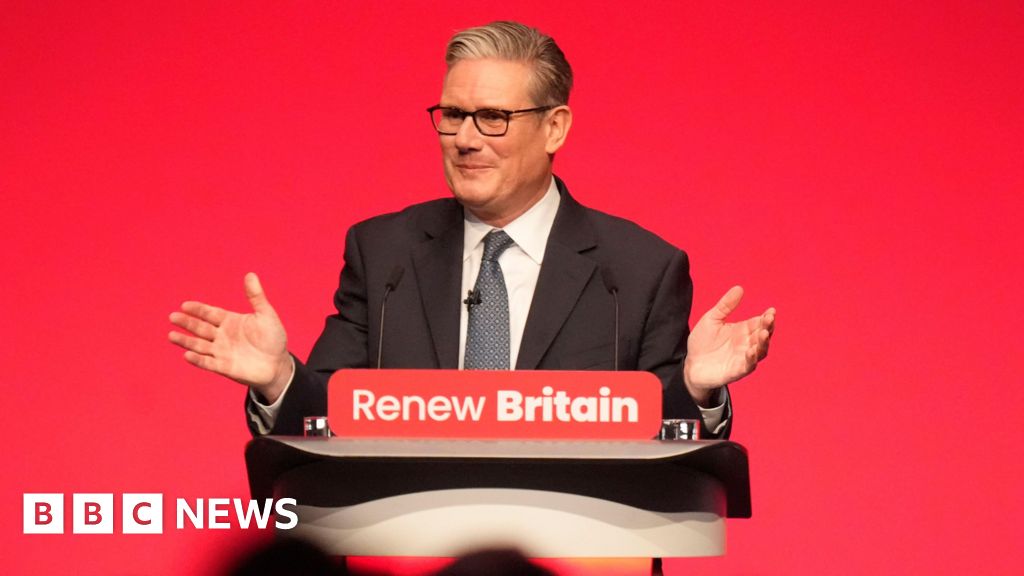PM sets new target for under-25s in university, college or apprenticeships
Prime Minister Keir Starmer has said he wants to see two-thirds of young people in the UK go to university or study a technical qualification after leaving school.
Speaking at the Labour Party conference in Liverpool, he said the party’s old ambition to “get 50% of kids to uni” – a target set by Tony Blair in 1999 – was no longer “right for our times”.
Instead, he said the government would pursue a new target for young people going on to university, further education, or a “gold standard apprenticeship” by the age of 25.
It is a significant shift in political tone which gives more prominence to skills training linked to jobs. But the decision on what and how to study will remain with individual students in England.
The prime minister’s speech has shifted the emphasis to higher-level education or training, which is far wider than a traditional three-year academic university degree.
The government said the target would also include seeing at least 10% of young people pursuing higher technical courses or apprenticeships by 2040 – nearly double the current level.
The new ambition will include both degree-level apprenticeships, which are partly funded by the employer through a levy, and qualifications which sit just below the level equivalent to a university degree.
Some of these can be studied at further education colleges, many of which offer higher education courses.
Under successive governments, colleges have fallen behind in funding compared with schools and universities.
David Hughes, from the Association of Colleges, described the change as “truly significant.”
“I’m sure the prime minister knows he is going to have to invest in colleges to back up his warm words,” he added.
The shift in tone was also welcomed by the manufacturers association MAKE UK. Chief executive Stephen Phipson said it gave advanced skills a “target of equal value to university that we have long advocated for”.
Pepe Di’Iasio, general secretary of the Association of School and College Leaders, welcomed the new emphasis on colleges, saying they had been “the forgotten heroes of the education system” for too long.
In England, there is no limit on the number of places universities can make available, apart from for a handful of regulated courses like medicine.
This means the demand for places comes from students themselves – a demand which shows no sign of waning. In 2024, 37% of 18-year-olds in England entered university through the Ucas application system.
It is 26 years since the then-Labour Prime Minister Tony Blair set out an ambition at a Labour Party conference for half of young people to study at university.
This entirely symbolic target was met in 2019, when half of those under the age of 30 had gone into higher education.
A number of factors contributed to this, including nursing becoming an all-graduate profession in the UK in 2013.
While there is little sign of the demand for university places declining among 18-year-olds, there has been increasing concern about the cost of living for students.
Tuition fees in England are £9,535 this year, and the government is considering whether to let them rise further.
The widening of participation in universities over two decades has also increased public debate and scrutiny of whether all universities, or all degrees, deliver worthwhile opportunities to graduates.
Share this content:




إرسال التعليق